Netflix’s latest Korean drama, “When Life Gives You Tangerines”, is a sweeping romantic epic set on Jeju Island, seamlessly blending humor and heartbreak—a balance that helped its first four-hour installment debut at No. 8 worldwide in Netflix’s TV show category just a day after its March 7 release. Spanning from the 1960s to the present day, the series follows the headstrong Oh Ae-sun (played by IU and Moon So-ri), who dares to dream beyond the limits set for her. At her side, through decades of change, love, and heartbreak, is Yang Gwan-sik (brought to life by Park Bo-gum and Park Hae-joon), a man whose quiet devotion speaks louder than words.
Park Bo-gum’s portrayal of Gwan-sik has captivated audiences, cementing him as one of the most compelling characters in recent K-drama history, but for English-speaking viewers, it is the actor Jonathan Tanigaki who carries the weight of Gwan-sik’s voice—capturing every unspoken emotion, every moment of longing, every heartbeat of a love story that spans generations.
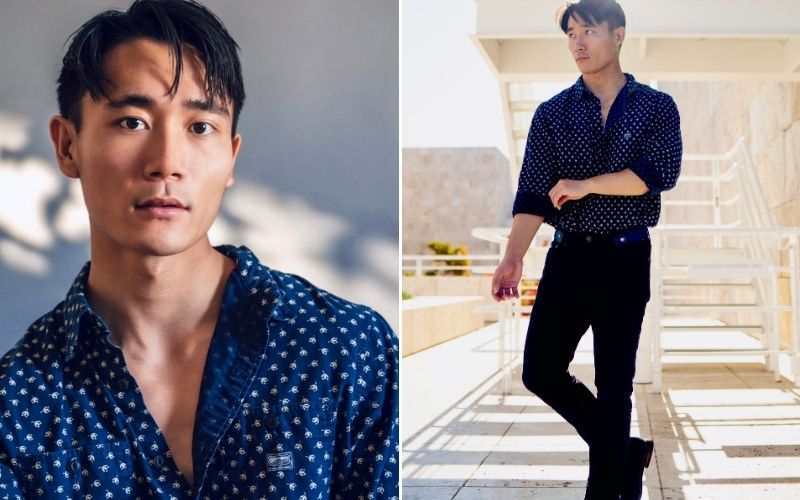
In this exclusive interview, Tanigaki takes us inside the dubbing booth, sharing the challenges of bringing such a deeply emotional role to life, the delicate balance of honoring Park’s performance, and what it really takes to make audiences feel something—even in a language not their own.
This interview took place in writing via email between March 16 and March 22.
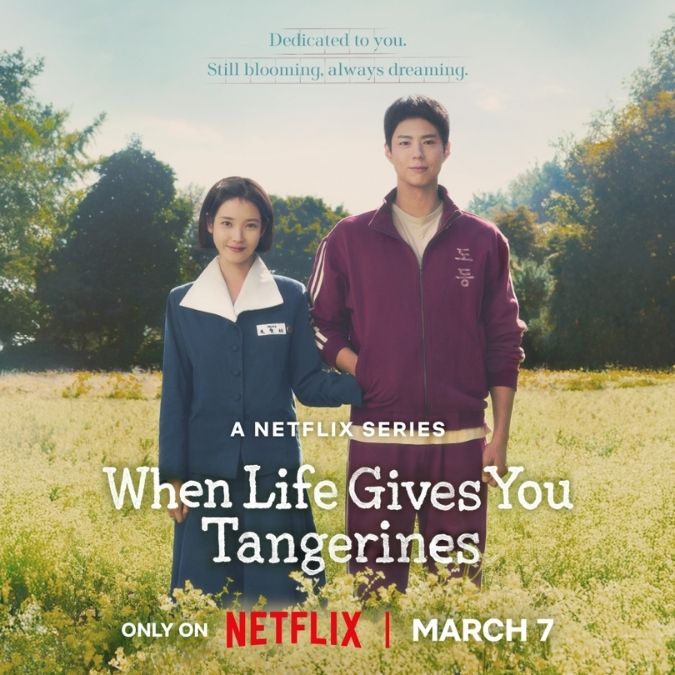
Could you please introduce yourself briefly?
I am a Japanese American actor born in New Jersey and currently living in Los Angeles, California. I studied musical theatre at the American Musical & Dramatic Academy in New York City. You may have seen me in projects such as “NCIS: Hawaii”, “S.W.A.T.”, “Call of Duty”, and “Paradise”. You may also have heard my voice in projects such as “Money Heist”, “Singles Inferno”, “All of Us Are Dead”, “Alchemy of Souls”, and most recently “When Life Gives You Tangerines.”
How does your experience as an actor contribute to your work as a voice actor?
I would say my experience as an actor has a lot of correlation to my experience as a voice actor. I am definitely more precise and aware of my vocal delivery because I am involved in both fields. What helps me is finding the natural grounded-ness in one’s voice when recording which is something I developed through acting on film. The recording booth sometimes is constrictive, and you feel as though you’re in a box needing to project outward, but through film I learned it’s ok to relax and loosen your body, and not have to push out the phrase, but rather embody the moment and deliver it as if you were there. I try to match the physicality as much as I can in the booth which seems to really help on the vocal performance.
Among the projects you have worked on, which character that you voiced has left the biggest impression on you?
By far the most rewarding character to voice was the main male character, Yang Gwan-sik, in “When Life Gives You Tangerines” just because he is a character that I respect, admire, and aspire to be. He reminds me of my father starting fresh as an immigrant in this country.
The other characters that I have portrayed in the past tend to be one of two types: Either the young male lead, which I tend to enjoy, or one of the young bullies of a drama, which has its fun moments. I had a blast playing Rio in “Money Heist” as well as Choi Jong-U in “Singles Inferno (Season 2)”. I had to scream and die from zombies as Myeong-Hwan in “All of Us Are Dead” which was cathartic in its own way.
How did you feel when you were first approached about dubbing Yang Gwan-sik in “When Life Gives You Tangerines”?
When I was offered the role, I didn’t entirely know what I was getting myself into or how large of a show it was going to be. I believe Netflix's casting team reached out to me because I had previously done the English voice match for Park Bo-gum in another project called “Wonderland.”
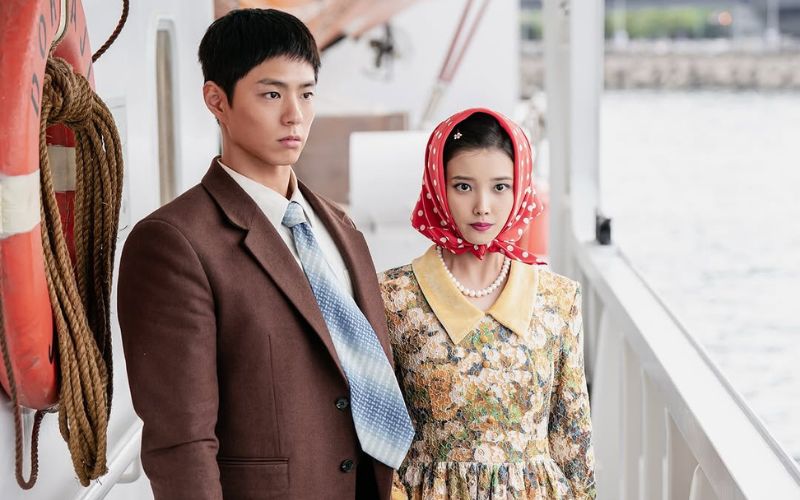
How did you prepare to become the voice of Yang Gwan-sik?
The team behind the dubbing provided me with ample information and context to digest and work with well before going into the booth to record. I must say I have a love-hate relationship with Gwan-sik. He is such a likable guy with a heart of gold, always putting Ae-sun and his family first. He’s incredibly admirable for that, but it makes the rest of us guys look bad in comparison. Haha! I tried to convey Gwan-sik’s earnest resoluteness as well as his pure, unadulterated innocence in the English voice. He is a man of action, willing to do whatever it takes for the sake of his wife and kids. Park Bo-gum also has a “Crest commercial” smile that could warm anyone’s heart. He did an incredible job portraying the character.
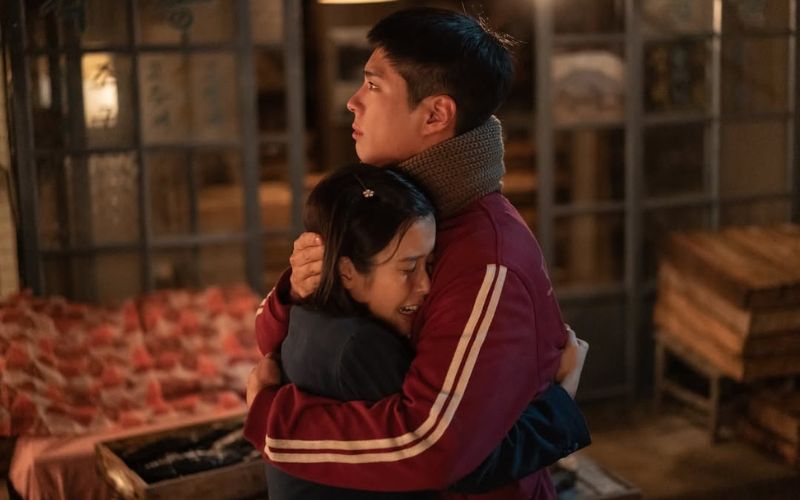
What was the dubbing process like?
It is so much fun because while dubbing the scenes, we watch the show as we go along. I was rooting for Gwan-sik and Ae-sun the whole time and would sometimes audibly gasp when there was a plot twist. Watching it really helps me connect with the character, so when I see Gwan-sik going through something, as a voice match, I really try to empathize with what he is going through. One of the challenges is the word-for-word translation of lines. We try to match the mouth movements as best as possible, but it doesn’t always come out clearly due to language differences. Fortunately, the team is open to trying out alternate translations to see which phrases match best with the mouth movements, which has always been very helpful.
As a professional voice over actor, how do you work through the difficult scenes and say your lines while watching the show at the same time? Since you are also a viewer of the series, how do you ensure that you don’t let your natural reactions affect your tone in surprising scenes?
At the end of the day, it’s all about imagination and the suspension of disbelief. I’d say hitting the necessary vocal delivery is a lot easier than it is on film because everything is already given to you. I hear the other character, I see what is going on in the story, I am moved by the performance and moved by the music from the show, so certain things fall into place. I will say I stumble through the lines quite a bit sometimes, but it’s also the trust and guidance I get from the dubbing director. They tend to give me really great delivery input that keeps me on track. Sometimes the first take is the rawest, so we end up going with that plus a few safeties just in case. All in all, I love what I do and am enraptured and moved by the story, so I tend to use that to fuel me rather than have that hinder me during the performance.
In “When Life Gives You Tangerines”, is there a particular line that stood out to you? How did this line make you feel?
Gwan-sik is a man of few words but the one that sticks out is when he says to his daughter that she can quit whenever and always come back home. He says that a few times through the show and I think it is so endearing. Although a lot of stubborn kids won’t admit it, I feel deep down having a father like that to always come back to is so reassuring and heartwarming.
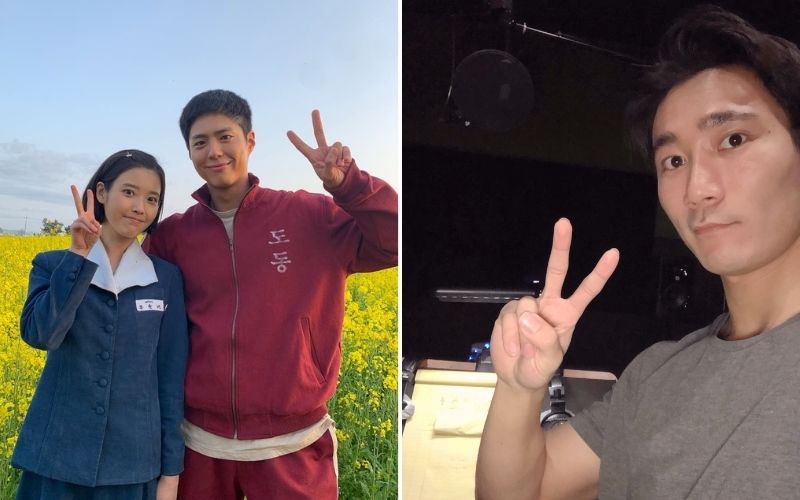
Since the series is mostly set in Jeju Island, have you ever visited there for a vacation or for any other purpose?
I have never visited Jeju Island. The first time I heard about it was from the “Ant Raid Arc” in the manhwa “Solo Leveling,” which made it seem like a remote, uninhabited island (probably because of the ant monsters), but seeing it in this light made me realize how ignorant I was. It looks amazing, and I would love to visit one day and breathe some much-needed fresh air.
What is your favorite Korean drama?
My favorite Korean drama is definitely “Vincenzo.” The whole mafia story with a Korean backdrop is literal gold. So entertaining!
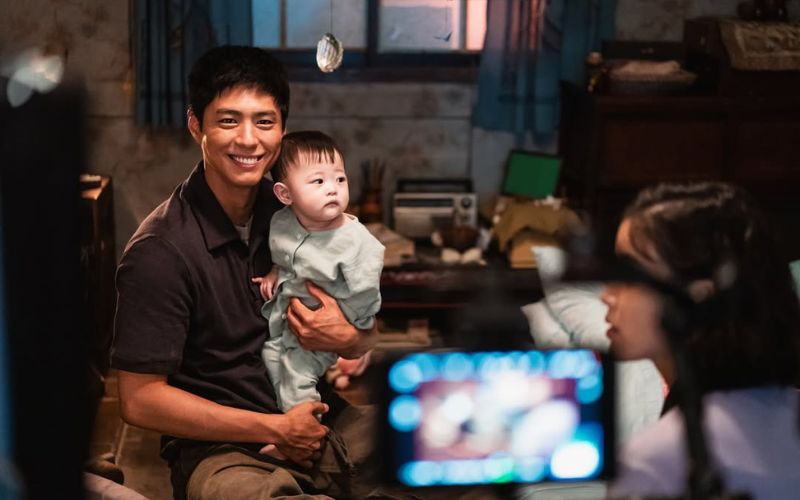
Finally, what advice would you give to aspiring voice actors?
My advice to aspiring voice actors is to put yourself out there in the best possible light at the moment, be open to collaboration and adjustments, and have fun! That way, you’ll enjoy the journey and improve over time with every experience.
How about this article?
- Like6
- Support2
- Amazing4
- Sad0
- Curious0
- Insightful1


